
Publications
UNESCO’s publications contribute to accomplishing the Organization’s goals. They are an important means of maintaining, advancing and sharing knowledge, between and across all parts of the world. While some aim to inform the general public, many provide specialists with expert knowledge drawn from UNESCO’s fields of competence. These diverse publications and co-editions, translated into over 70 languages, all serve the common goal of bringing about positive change.
Just published – Our latest highlights
Technology’s role in education has been sparking intense debate for a long time. Does it democratize knowledge or threaten democracy by allowing a select few to control information? Does it offer boundless opportunities or lead towards a technology-dependent future with no return? Does it level the playing field or exacerbate inequality? Should it be used in teaching young children or is there a risk to their development?
The debate has been fueled by the COVID-19 school closures and the emergence of generative artificial intelligence.
This new report recommends that technology should be introduced into education on the basis of evidence showing that it would be appropriate, equitable, scalable and sustainable. In other words, its use should be in learners’ best interests and should complement face-to-face interaction with teachers. It should be seen as a tool to be used on these terms.
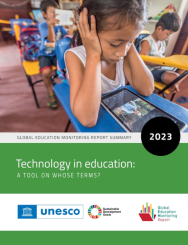
1 in every 8 people worldwide lives with a mental or neurological disorder (Institute for Health Metrics and Evaluation, 2019), which represents 1/3 of health expenses in developed countries, and a growing burden in Low-to-Middle- Income Countries.
With the potential to provide new treatments and preventative and therapeutic solutions, neurotechnology offers tremendous hope for patients around the world.
However, this technology raises unique ethical concerns. The increasing possibilities to modify the brain, and consequently the mind, in an invasive and pervasive way, requires us to ask unprecedented questions. Is there a need for new neuro-specific human rights to protect our mental privacy and integrity?
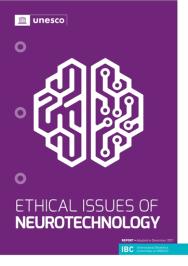
UNESCO was born out of a simple conviction: peace and development require stronger foundations than those resulting from political and economic arrangements between states. To better understand and respect each other; to be aware that we all belong to a single human family; to recognize that we share the same planet: those are the greatest challenges.
This publication tells the story of UNESCO’s endeavors to understand, preserve and convey the best of our shared humanity, so we can join efforts and transform of the world.
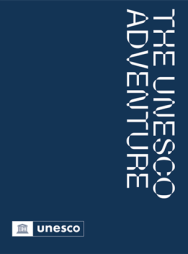
Our world is full of wonders. From historic cities, castles and cathedrals to magnificent mountains, rainforests and oceans, the world’s greatest treasures belong to all humankind. This is our world heritage.
But our heritage is constantly under threat – from natural disasters, wars, climate change, construction, pollution and mass tourism.
In this book, co-published with Hachette, we visit over 70 World Heritage Sites in 52 countries.
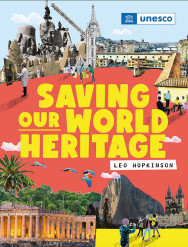
Global Reports
Buy a report
General Histories
Periodicals
Don't miss any news from The Courier
On the same subject
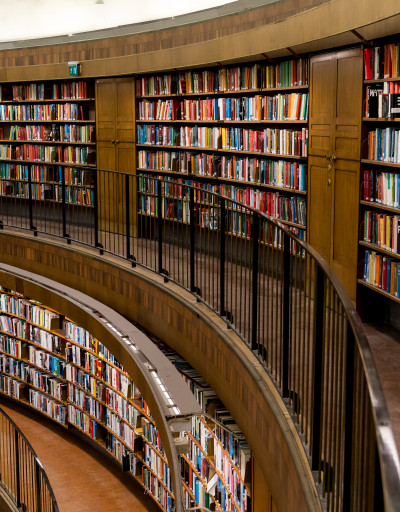
Archivos: Latin American and Caribbean identity (1988–2003)
- As the world started to discover Latin American literature, the absence of dialogue between the readers and specialists from the different countries in the region was made evident. In October 1988, the first 12 volumes of the Archives of 20th-century Latin American and Caribbean Literature, a collection launched in 1983 with the assistance of UNESCO, were published.
- Over the years, a total of 58 titles were produced, featuring the major works in Spanish, Portuguese and French from some of the best writers in Latin American and the Caribbean, along with critical essays, chronologies and background papers produced by the top specialists at the time. This collection remains unparalleled today.
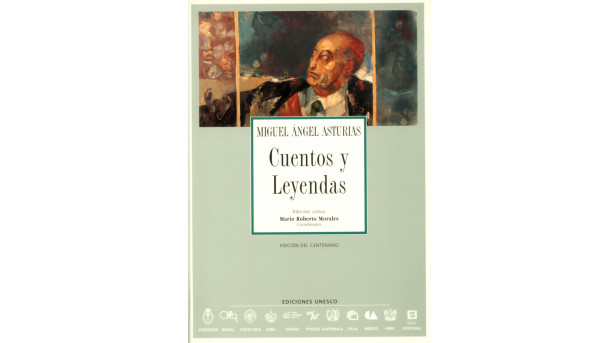
Creative Cities of Literature
The UNESCO Creative Cities Network (UCCN) was created in 2004 to promote cooperation with and among cities that have identified creativity as a strategic factor for sustainable urban development.
The Network covers seven creative fields: Crafts and Folk Arts, Media Arts, Film, Design, Gastronomy, Literature and Music.
The 246 cities which currently make up this network work together towards a common objective: placing creativity and cultural industries at the heart of their development plans at the local level and cooperating actively at the international level.

La collection Bouba et Zaza
La collection « Bouba et Zaza – Cultures d’enfances », en partenariat avec les éditions Michel Lafon, aborde des thèmes sensibles comme l’environnement, l’illettrisme, l’éducation des filles ou le SIDA pour rompre les tabous et sensibiliser les enfants. Ces albums éducatifs et ludiques sont destinés aux enfants de trois à huit ans et se déclinent en plusieurs langues.
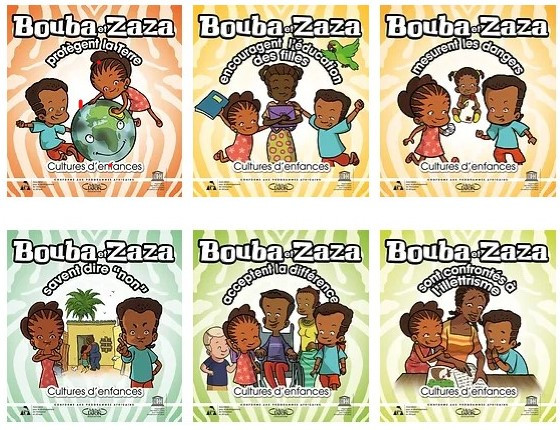
The Bouba & Zaza Collection
The "Bouba & Zaza - Childhood Cultures" Collection, in partnership with Michel Lafon Publishing, tackles sensitive issues such as the environment, illiteracy, girls' education and AIDS to break taboos and raise children's awareness. These educational and entertaining albums are aimed at children aged three to eight, and are available in several languages.
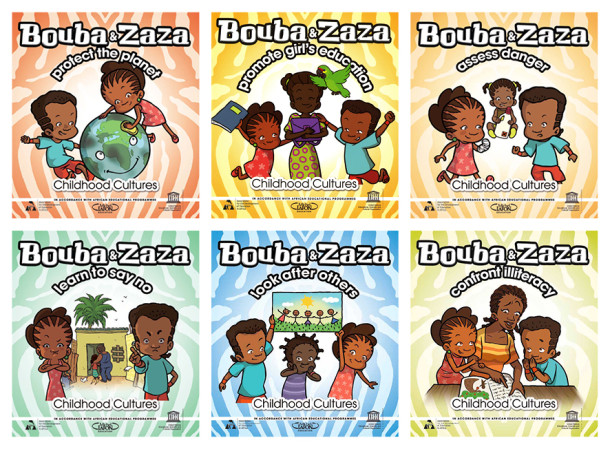
Open Access policy
In order to help reduce the gap between industrialized countries and those in the emerging economies, UNESCO decided in 2013 to adopt an Open Access Policy for its publications by making use of a new dimension of knowledge sharing.
Open Access means free access to scientific information and unrestricted use of electronic data for everyone.
For UNESCO, adopting an Open Access Policy means to make thousands of its publications freely available to the public.









